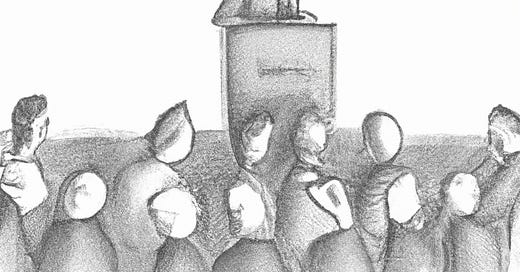The Absurdity of Censorship
While watching “Oppenheimer” recently it struck me that someone at the CBFC (Central Board of Film Certification) must have carefully examined a nude scene of Florence Pugh to apply the black masking on her breasts. They did not just watch it in passing and declare it worthy of censorship - no. They meticulously determined where her breasts ended and how much of her back to conceal—enough to keep her torso partially visible but not enough to suggest buttocks.
It brought to mind this famous anecdote: After Samuel Johnson published his dictionary of the English language he was reportedly approached by two ladies who said to him, “Mr. Johnson, we are glad that you have omitted the indelicate and objectionable words from your new dictionary.”
“What, my dears!” said Mr. Johnson. “Have you been searching for them?”
To censor someone has to go looking for something to censor (and they always find something).
And then the question is: what happens to this person who sees what should not be seen?
If this thing is so awful that people shouldn’t see it, what happens to those who do see it? Are they corrupted? Does looking at Florence Pugh’s breasts cause irreversible brain damage?
There are only two rationales for an adult telling another adult what to watch and they play out roughly like this:
‘I have seen this thing - it ruined me, corrupted me, destroyed my purity. Now, affected so deeply by this filth I will walk out of this room and go and rape people. It will ruin you too. Thus for the sake of the harmony of society, you should not see it.’
‘I have seen this thing - I am unaffected by it because I am made of sterner stuff. But you will be because you are either weaker, stupider or inferior.’
Do you - yes you - think you are weaker, stupider or, in any way, inferior to the esteemed members of the CBFC? Or are the members of the CBFC irreparably damaged by the things they see every day - if so what heinous acts are they committing daily that reveal the negative effect of these things they see?
Censorship - like all authoritarian tools - is more concerned about the group than the individual and is more concerned with purity than progress. This can only lead to more censorship, less criticism, and the slow transformation of an open society to a static one.




